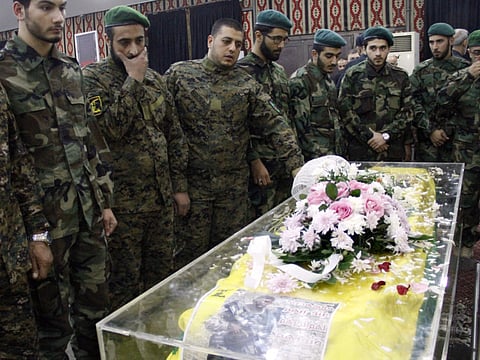Hezbollah retracts claim that it is an ‘army’
Group’s second-in-command had earlier asserted that it had developed from a guerilla outfit into an army

Beirut: Hezbollah issued a formal denial after the pro-Hezbollah daily Al Safir published comments attributed to the party’s second-in-command, Shaikh Naim Qasim, that Hezbollah had developed from a guerilla group into an “army”.
On Thursday, Al Safir published a terse denial of Qasim’s interview on Wednesday where he was quoted as saying: “We now have a trained army and the resistance does not need to rely on guerilla tactics.”
Qasim further claimed that Hezbollah was “heavily armed and well-trained and had acquired well-developed expertise to protect Lebanon and the interest of Lebanon”.
His comments came after pictures emerged of a Hezbollah parade in Syria’s Qusayr, raising eyebrows as US-made tanks and army vehicles were spotted.
Hezbollah has been fighting alongside Syrian regime forces in an effort to bolster President Bashar Al Assad and the group’s leader Hassan Nasrallah openly admitted to this in 2013.
The pictures prompted the US to call for an investigation to determine the origins of the tanks and artillery guns that were displayed during the parade.
The parade and the Al Safir interview were widely interpreted as a direct message to Lebanon’s new President Michel Aoun, who has pledged to restore state sovereignty.
“President Michel Aoun is a strategic ally and he protects our national and public choices. We trust him and agree with him on several positions,” Qasim said in the interview, while adding that Hezbollah did not have to answer to the state over its involvement in Syria.
Many Lebanese accuse Hezbollah, designated a terrorist organisation by GCC states, of imposing its values on the rest of Lebanon and undermining the authority of the state.
Recently, Beirut’s airport was converted into a prayer hall for arriving Shiite pilgrims and a welcome mat with the words “country of the resistance” welcomed them.
This is in direct conflict with Lebanon’s tradition of tolerance and freedom of religion as it strictly upholds secular values in public places.



